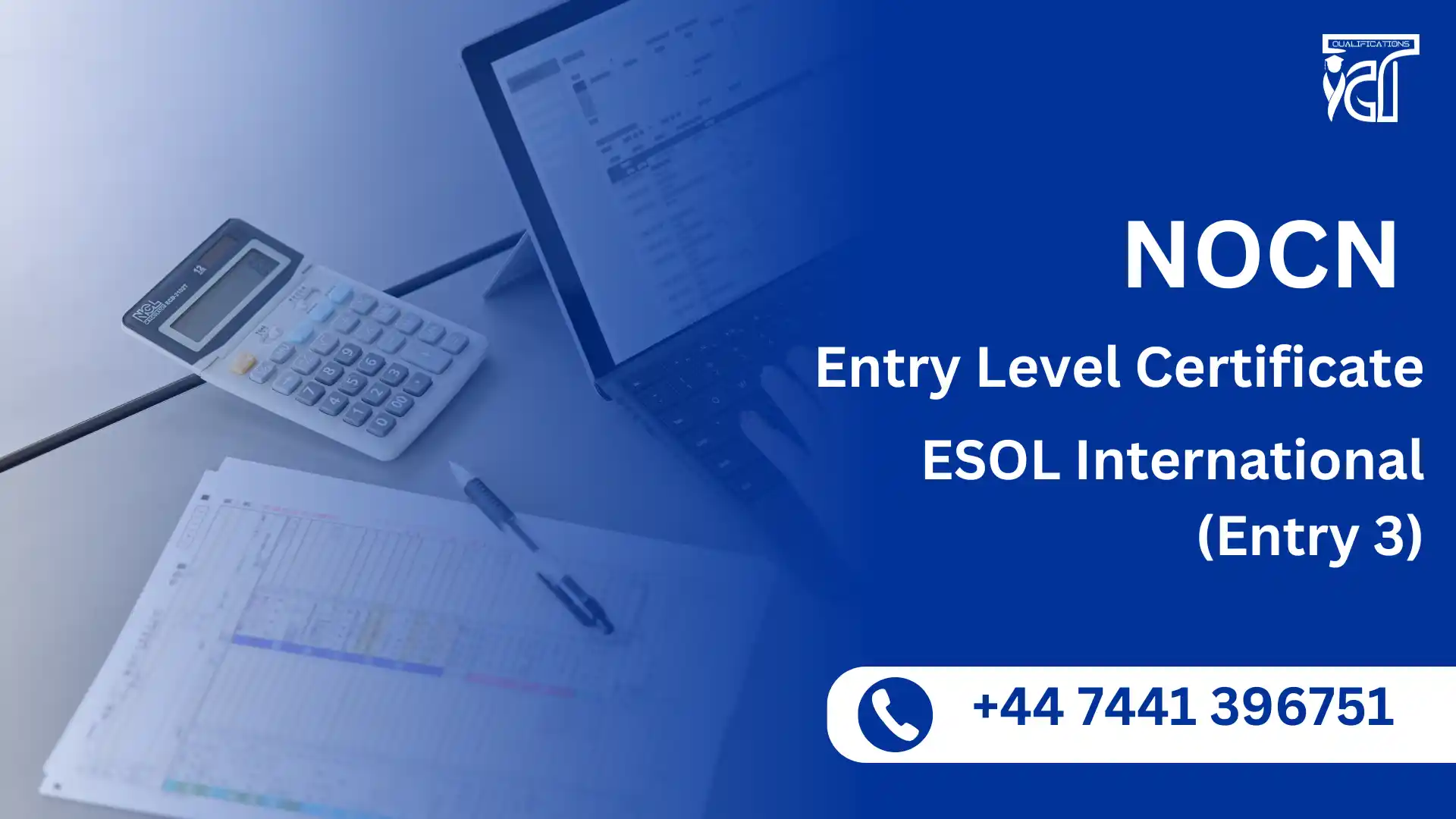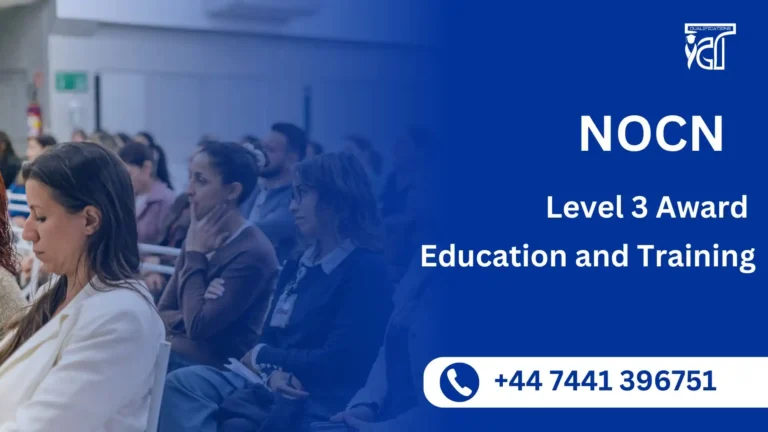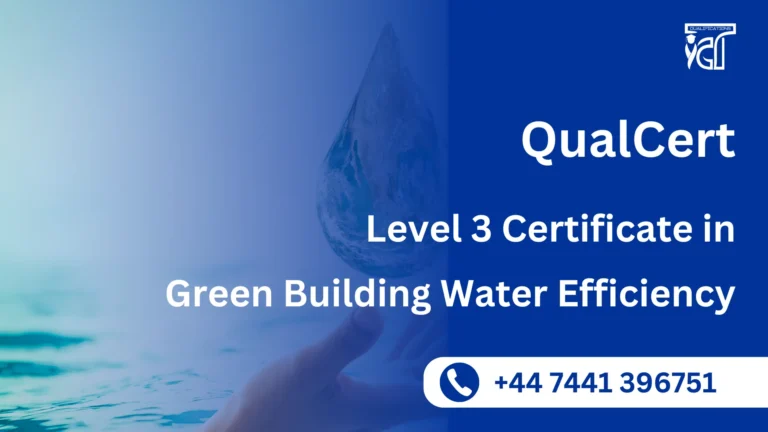In today’s globalized world, English is a critical skill for both personal and professional success. Whether you’re looking to improve your communication skills, advance your career, or integrate into an English-speaking environment, the NOCN Entry Level Certificate in ESOL International (Entry 3) offers a structured, Ofqual-regulated qualification designed to help you achieve your language goals. This assignment-based qualification focuses on improving your English language proficiency at a fundamental level, giving you the tools you need to succeed.
The NOCN Entry Level Certificate in ESOL International (Entry 3) is an Ofqual-regulated qualification aimed at non-native English speakers. It is designed for learners who have basic or foundational knowledge of English and wish to progress towards achieving more complex language skills. This qualification focuses on practical skills in speaking, listening, reading, and writing, helping learners engage confidently in everyday situations and improve their fluency in English.
The NOCN Entry Level Certificate in ESOL International (Entry 3) is a valuable qualification for anyone looking to improve their English proficiency at a foundational level. Whether you’re preparing for further studies, enhancing your career prospects, or seeking to improve your personal communication skills, this Ofqual-regulated, assignment-based qualification provides the tools and confidence needed to succeed in English-speaking environments.
NOCN Entry Level Certificate in ESOL International (Entry 3)
NOCN Entry Level Certificate in ESOL International (Entry 3) program consist of 300 TQT (Total Qualification time) and 30 Credit Value.
Mandatory units
| Sr# | Unit Title |
|---|---|
| 1 | IESOL Level 3 Reading |
| 2 | IESOL Level 3 Speaking |
| 3 | IESOL Level 3 Writing |
| 4 | IESOL Level 3Listening |
GLH (Guided Learning Hours) and TQT (Total Qualification Time) are terms commonly used in vocational qualifications to help define the amount of time a learner is expected to spend on heir studies.
1. GLH (Guided Learning Hours)
GLH refers to the number of hours a learner spends being directly taught, supervised, or supported during their course. This includes the time spent in activities such as:
- Classroom instruction
- Practical workshops
- One-on-one tutoring or mentoring sessions
- Online learning sessions with tutor support
In other words, GLH represents the time that learners are actively engaged with their instructors or learning activities.
2. TQT (Total Qualification Time)
TQT represents the total amount of time a learner is expected to invest in completing a qualification, including:
- GLH (Guided Learning Hours): Time spent on direct learning, as explained above.
- Self-Directed Learning: This includes time spent on independent study, research, assignment completion, preparation for exams, and any other work the learner does outside of direct teaching hours.
TQT is a broader measure that includes all the time required to achieve the qualification. It helps learners and employers understand the overall commitment required for the qualification.
Key Differences Between GLH and TQT:
- GLH focuses on direct learning with guidance or supervision.
- TQT includes GLH as well as independent study time and other learning-related activities.
Example:
If a qualification has a TQT of 600 hours and a GLH of 250 hours, it means the learner should spend 250 hours in direct learning (classroom, online, or tutor-led sessions) and 350 hours on independent study or research.
Learning Outcomes of NOCN Entry Level Certificate in ESOL International (Entry 3)
IESOL Level 3 – Reading
- Comprehend and analyze a wide range of complex written texts, including academic, professional, and literary materials.
- Identify and interpret the main ideas, supporting details, and implied meaning in texts.
- Evaluate the effectiveness of different writing styles, structures, and language use in diverse written formats.
- Extract and synthesize information from multiple sources, drawing conclusions based on detailed evidence.
- Apply advanced reading strategies to understand subtle differences in meaning, tone, and style in various contexts.
IESOL Level 3 – Speaking
- Engage in extended discussions and conversations on abstract, complex, and unfamiliar topics, using a wide range of vocabulary and grammar structures.
- Express ideas, opinions, and arguments clearly, confidently, and coherently, tailoring language appropriately to the audience and context.
- Demonstrate fluency and accuracy in speaking, with minimal hesitation and the ability to handle unexpected or challenging questions.
- Provide detailed explanations, reasoning, and justifications for viewpoints in both formal and informal settings.
- Use sophisticated language and idiomatic expressions to enhance communication in professional, academic, and social interactions.
IESOL Level 3 – Listening
- Understand and critically evaluate a variety of spoken English in formal and informal contexts, including abstract, technical, and academic discussions.
- Comprehend implied meanings, tone, and nuance in spoken English, even when the language used is indirect or figurative.
- Identify key points, arguments, and supporting details in complex audio recordings or spoken content.
- Respond appropriately to spoken language, demonstrating the ability to process and retain information from a range of spoken materials.
- Understand and engage with different accents, registers, and speech speeds in diverse listening contexts.
IESOL Level 3 – Writing
- Produce clear, coherent, and well-structured written texts on a variety of complex subjects, demonstrating effective argumentation and logical flow.
- Use advanced grammar, punctuation, and vocabulary to write accurate and sophisticated texts, with a high degree of clarity and precision.
- Demonstrate the ability to adapt writing style and tone for different audiences and purposes (e.g., formal reports, essays, emails).
- Synthesize and organize information from multiple sources to create well-supported written responses or documents.
- Proofread and edit written work for accuracy, ensuring the final product adheres to high standards of grammar, spelling, and coherence.
Course Benefits of the NOCN Entry Level Certificate in ESOL International (Entry 3)
1. Recognized Qualification
The NOCN Entry Level Certificate in ESOL International (Entry 3) is an Ofqual-regulated qualification, ensuring global recognition. This certificate provides proof of your foundational English skills, which is essential for career growth, further education, and daily communication in English-speaking environments.
2. Practical Language Skills
This course focuses on real-life, practical language skills that learners can immediately apply. From speaking and listening to reading and writing, learners improve their ability to communicate effectively in everyday situations, such as shopping, making appointments, or socializing.
3. Flexible Learning Approach
The assignment-based nature of the course allows learners to work at their own pace, providing a flexible learning experience. This method suits those with busy schedules or those who need extra time to grasp key concepts without the pressure of exams.
4. Clear Path for Progression
The Entry 3 level qualification serves as a stepping stone for those looking to progress to higher-level ESOL qualifications. It provides a strong foundation for further English language development, such as moving on to Level 1 or Level 2 ESOL certifications.
5. Personal Development
Achieving the NOCN Entry Level Certificate boosts learners’ confidence in using English, enabling them to navigate various social, academic, and professional settings with greater ease and independence.
Ideal Learner for the NOCN Entry Level Certificate in ESOL International (Entry 3)
1. Non-Native English Speakers
The NOCN Entry Level Certificate in ESOL International (Entry 3) is ideal for non-native English speakers who have a basic understanding of the language and wish to develop their skills to a more functional level. This course is perfect for those who need to improve their ability to communicate in everyday situations.
2. Adult Learners
This qualification is tailored for adult learners who are looking to improve their English language skills for personal, social, or professional purposes. Whether you’re new to English or seeking to refine your foundational skills, this course offers a flexible and supportive learning environment.
3. Learners Seeking to Progress
The ideal learner may have completed a lower-level ESOL qualification (such as Entry 2) and is now ready to progress to a higher level. It’s perfect for those who want to build their confidence and fluency in English before advancing to more complex language studies.
4. Individuals with Limited Time
The assignment-based structure of the course suits individuals with busy schedules who prefer to study at their own pace, without the pressure of formal exams. It is perfect for those balancing work or other commitments while improving their English skills.
5. Immigrants or Refugees
The course is highly beneficial for immigrants or refugees who wish to integrate into an English-speaking community. By enhancing their basic language skills, learners can improve their chances of securing employment, navigating daily life, and participating in community activities.
Entry Requirements
Register Now
Qualification Process
Qualification Process NOCN Entry Level Certificate in ESOL International (Entry 3)
- Self-Assessment:
Begin by evaluating your eligibility to ensure you meet the qualification requirements, including work experience, knowledge, and language proficiency. - Registration:
Complete your registration by submitting the required documents, including a scanned copy of a valid ID, and paying the registration fee. - Induction:
An assessor will conduct an induction to confirm your eligibility for the course and explain the evidence requirements. If you do not meet the criteria, your registration will be canceled, and the fee will be refunded. - Assignments & Evidence Submission:
Provide all assignments and the necessary evidence based on the assessment criteria outlined in the course. If you are unsure of the required evidence, consult with the assessor for guidance on the type and nature of evidence needed. - Feedback and Revision:
The assessor will review your submitted evidence and provide feedback. Evidence that meets the criteria will be marked as “Criteria Met,” while any gaps will be identified. You will be asked to revise and resubmit if needed. - Competence Evidence:
Submit final evidence demonstrating that all learning outcomes have been met. This evidence will be marked as “Criteria Met” by the assessor once it is satisfactory. - Internal Quality Assurance (IQA):
The Internal Quality Assurance Verifier (IQA) will review your evidence to ensure consistency, quality, and compliance with standards. - External Verification:
The IQA will submit your portfolio to NOCN External Quality Assurance Versifier (EQA) for final confirmation. The EQA may contact you directly to verify the authenticity of your evidence. - Certification:
Upon successful completion of all checks, NOCN will issue your official certificate, confirming that you have attained the NOCN Entry Level Certificate in ESOL International (Entry 3)







